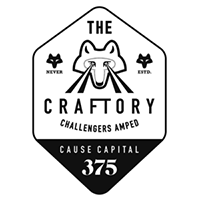Hemp and Tobacco: A Reversal of Fortunes?
Image by Drew Taylor
Here in the UK the vape shop is becoming the arena of a significant economic and cultural change. Visit any vapery and you’ll find once mighty Tobacco reduced to a niche enterprise attempting to redefine itself through twinkly tech and cute aromas. Look closer and you’ll also find CBD oil for sale.
What’s going on here? How did tobacco (until recently seen as Normal) and hemp/cannabis (until recently seen as Bad) end up in the same place, at the same time, but heading in different directions?
Some facts. First tobacco:
In 1964 the United States Surgeon General’s Advisory Committee on Smoking and Health concluded that excessive smoking causes lung cancer. Evidence had been gathering on both sides of the Atlantic since the 1930s, but 1964 marked the point when the general public’s perception of cigarettes started to change. Smoking was still cool, but now it was dangerously hedonistic too.
Fast forward to 2018 ...
After 50 years of tightening legislation cigarette brands are banned from marketing in most developed countries, in-store packs are hidden behind opaque screens and covered in gruesome images of diseased body parts.
Once iconic global brands like Marlboro, Camel and Lucky Strike are pariahs, and massive businesses have withered. We’re witnessing the end of an era. The tobacco companies have switched to e-cigarettes for nicotine consumption and a new retail destination the Vape Shop has been born.
Hold that thought ...
Pre-1900 industrial hemp was a staple crop in the US, it’s versatility was well understood and it was commonly used for skin care, food, paper, packaging, textiles and building materials. However, by the 1930s hemp was in direct competition with industrial cotton and timber based pulp. Cotton was backed by DuPont, timber by Hearst, both supported by Mellon Bank (owned by the then US Secretary of the Treasury Andrew Mellon).
By 1937 concerns re: excessive use of marijuana were at racist fever pitch and the prohibition of hemp was ordered in tandem to cannabis because Narcotics Bureau agents found it ‘difficult’ to tell the difference between the two crops.
It’s worth noting the US Narcotics Bureau was created by the same Andrew Mellon and run by Harry Anslinger, a member of the Mellon family. Conspiracy theory or sly business strategy? You decide.
Fast forward to 2018:
After 80 years of prohibition we’re rediscovering how useful hemp and cannabis can be. Hemp crops place significantly less burden on our ecosystem than cotton and timber pulp. New science is revealing the medicinal potential of CBD oil (minus narcotic THC), and the general public are open minded about all this - as seen in high recent profile news stories and referenda.
2018 marks an inflection point in the economic potential of industrial hemp and medical cannabis. Stigma is being replaced by optimism. Here in London CBD oil is readily available in vape shops and the Home Secretary has announced a relaxation in accessibility of medicinal cannabis.
What happens next? Tobacco exits the vape shop back door (with DNA damage and popcorn lungs), while hemp and medical cannabis rejoin the mainstream (and the medicine cabinet)?
It seems clear we’re witnessing the birth of a new CPG category and it’s likely new global brands are being conceived as we speak. Will the next Fruit of the Loom, Tetra Pack or Advil be born of hemp or CBD? The potential is there.
Sources:
http://www.wakingtimes.com/2012/06/27/the-hemp-conspiracy-why-u-s-hemp-farming-was-banned/
http://cannabisreports.org/hemp-uses-top-uses-for-hemp/
https://www.ncbi.nlm.nih.gov/pmc/articles/PMC1446538/
Elio Leoni Sceti is Co-Founder at The Craftory, the counter-corporate anti-VC on a $300M mission to back the world's boldest challenger brands in the consumer goods space.


